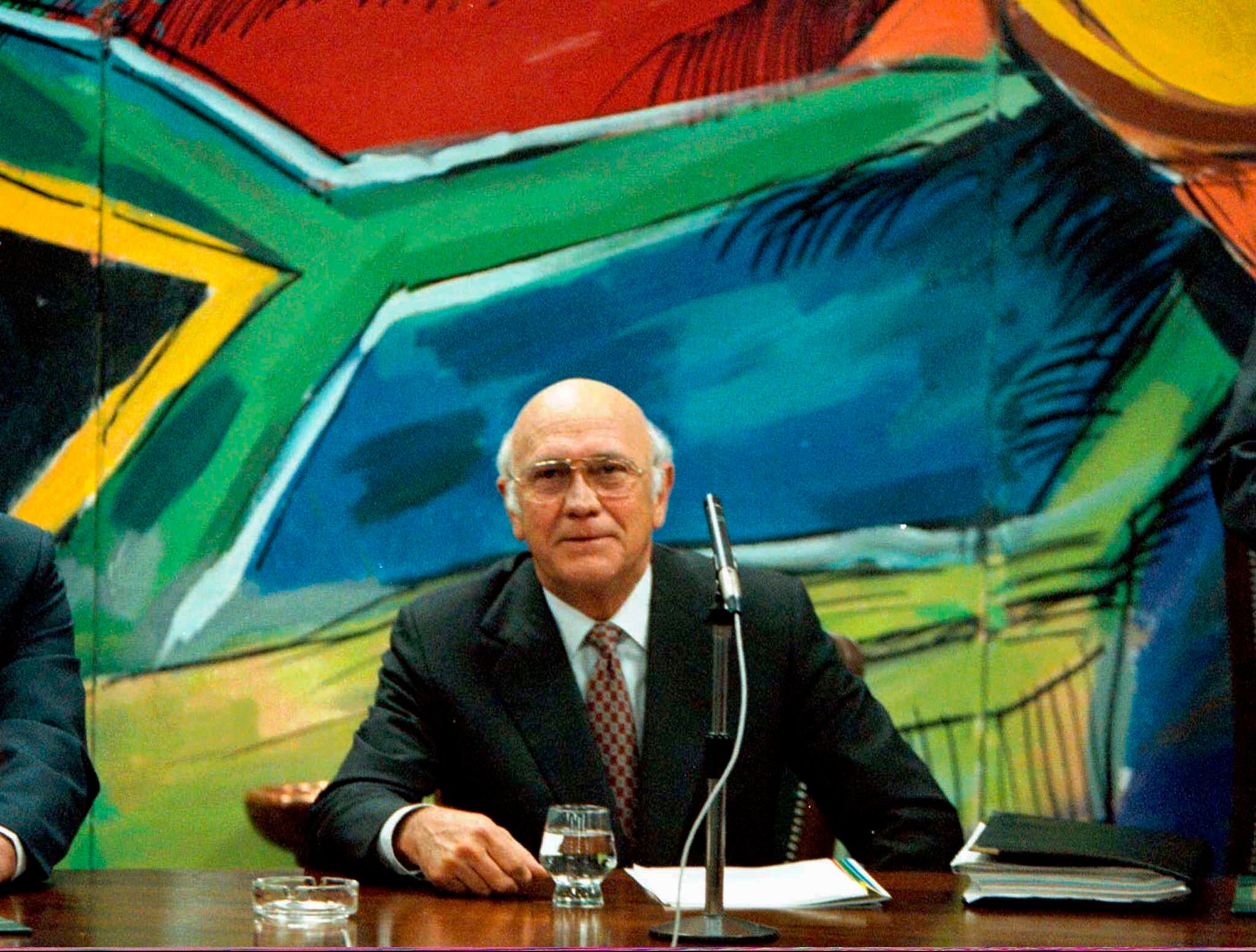FW de Klerk: South Africa’s last white president dies and leaves apology for apartheid
De Klerk faced both praise and criticism for his role in transition from apartheid to democracy

The death of former South African president FW de Klerk, who effectively ended white rule and secured the release of Nelson Mandela, has been followed by a video in which he apologised for the damage of apartheid.
De Klerk died aged 85 at his home on Thursday after a struggle with cancer, his foundation said.
The country’s last white leader was a divisive figure in South Africa; many people blamed him for violence against black South Africans and anti-apartheid activists, while some whites saw his efforts to end white supremacy as a betrayal.
In a video published on his foundation’s website hours after his death, De Klerk apologised for the crimes committed against people of colour.
“I, without qualification, apologise for the pain and the hurt and the indignity and the damage that apartheid has done to Black, Brown and Indians in South Africa,” de Klerk said in the video. It was unclear when the recording was made.
“Allow me in this last message to share with you the fact that since the early 80s, my views changed completely. It was as if I had a conversion. And in my heart of hearts, I realised that apartheid was wrong. I realised that we had arrived at a place which was morally unjustifiable,” he said in the video.
De Klerk headed South Africa’s white minority government from 1989 until 1994, when Mandela’s African National Congress party came to power - marking the end of apartheid.
In 1990, de Klerk told South Africa’s parliament that Mandela would be released from prison after 27 years, sending shockwaves throughout the country.
He shared the Nobel Peace Prize with Mandela in 1993, but his role in the transition to democracy is highly contested more than 25 years after the end of apartheid.
The former head of state won praise for helping South Africa’s shift from white minority rule to non-racial constitutional democracy, and for being the only world leader to dismantle an existing nuclear arsenal.
In messages of condolence, President Cyril Ramaphosa and Archbishop Desmond Tutu paid tribute to De Klerk, while Mandela’s foundation said in a statement that the former leader would “forever be linked to Nelson Mandela in the annals of South African history”.
However, de Klerk sparked controversy last year when he said he did not believe apartheid was a crime against humanity, as declared by the United Nations.
Some of his critics took to Twitter to say he should not get a state funeral due to his roots in the old apartheid regime.
Julius Malema, who heads the Economic Freedom Fighters (EFF), South Africa’s third biggest political party, said De Klerk should be referred to not as a “former president” but as a “former apartheid president”.
In retirement, the ex-leader headed the FW de Klerk Foundation, devoted to working for peace in multi-cultural societies.
De Klerk was diagnosed in March with mesothelioma, a cancer that affects the tissue lining the lungs.
“He is survived by his wife Elita, his children Jan and Susan and his grandchildren,” the foundation said, adding that the family would in due course make an announcement regarding funeral arrangements.
Additional reporting by AP and Reuters
Join our commenting forum
Join thought-provoking conversations, follow other Independent readers and see their replies
Comments


Bookmark popover
Removed from bookmarks